Summary
This event sought to take stock of progress and challenges to date in meeting the goals of the 2014 NYDF, highlight innovative areas of action, and foster a high-ambition multi-stakeholder collaborative process committed to increasing action to 2020 and beyond. The event was organized by the Global Platform for the NYDF and the Federal Ministry for the Environment, Nature Conservation and Nuclear Safety (BMU), Germany.
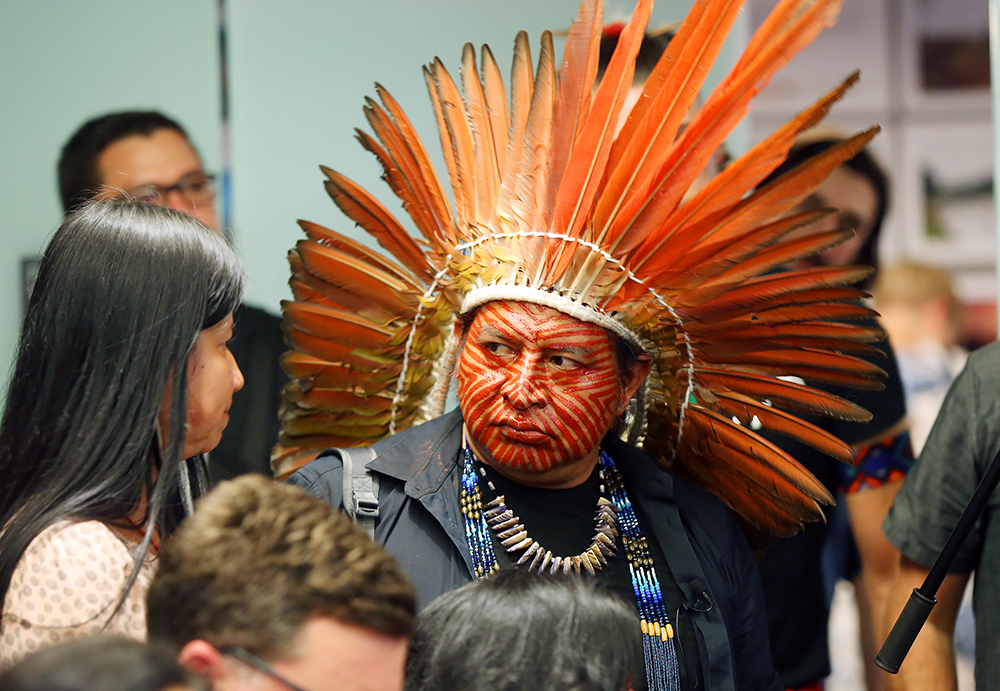
Tashka Yawanawa, an indigenous participant from the Amazon
Highlights
- The NYDF goals are not on track, but are still valid and require greater and more concerted efforts , with more multi-stakeholder partnerships.
- There are isolated success stories that should be promoted and learned from.
- Transformational change is needed, addressing both institutional and market failures.
- Transforming commodity chains is slower and more difficult than originally envisioned.
Event Summary: Opening Remarks
Carlos Manuel Rodriguez, Minister for Environment and Energy, Costa Rica, said progress in reversing deforestation will never be achieved both institutional failures and market failures are not addressed.
Rita Schwarzelühr-Sutter, BMU, noted that while Norway, Germany, and the UK are on-track for meeting their financial pledge under the Declaration, it is not enough and other governments, financial institutions, and the private sector need to join in and coordinate efforts to bring in more finance, address supply chain practices, and promote sound policies in line with the Paris Agreement.
Progress to Date and Unmet Commitments
Andrew Steer, President & CEO, World Resources Institute (WRI), said while the 5-year NYDF assessment report indicates goals are not on track to be met, it just means there is more work to be done. He urged improving productivity on current non-forested lands, improving governance including incentives, and converting low-yielding land back into forests.
Charlotte Streck, Co-Founder and Director, Climate Focus, characterized the essential messages of the NYDF Assessment Report 2019 as the need for: systemic change, to stop working in silos, to start working more as a community, and to seek transformative shifts in land use.
Jamison Ervin, UN Development Programme (UNDP), offered eight insights from the first-ever NYDF Endorser Perspectives Report capturing more than 80 endorser perspectives on why goals are not being met and what conditions are supporting progress, including: creating deforestation-free commodity chains is difficult and slow because it involves systemic change; strong governance at local levels is an important precondition; individual leaders make a difference; commitments rely on multi-stakeholder partnerships; clarify and resolve land-tenure rights, especially in indigenous territories is an important precondition; negative financial investments work against deforestation efforts; and while nature-based solutions yield societal benefits, many of these are not yet recognized.
Setting the Stage: Commitments to End Deforestation
Frans Timmermans, First Vice President, European Commission, outlined proposals for a major EU initiative on deforestation with five elements: increasing consumption of deforestation-free products; making EU development policy deforestation-free; strengthening international cooperation to halt deforestation and promote restoration; redirecting financial flows so money supports sustainable land use practices; and improving access to information on forests and supply chains.
Turning Commitments into Action Globally: A Ministerial Roundtable
Haoliang Xu, UNDP, emphasized that: future development will be limited not by financial or human resources, but rather planetary resources. He said incentives must be revised to get meaningful change to commodity chains.
Zac Goldsmith, Minister of State for Environment and International Development, UK, observed that there are many notable efforts underway, but “they are islands of brilliance in an ocean of mediocrity.” He said the Prime Minister will announce a major new initiative at the UN that emphasizes nature-based solutions.
Maria Flachsbarth, Ministry for Economic Cooperation and Development, Germany, emphasized: addressing commodity chains; bringing indigenous people in forest regions onboard; and protecting not just the Amazon, but also the Congo Basin and Indonesia.
Lee White, Minister for Forests, Sea, the Environment, and Climate Plan, Gabon, on behalf of the Central African Forest Initiative (CAFI), explained CAFI and the importance of protecting the Congo Basin forests. He noted that Gabon and Norway would sign an agreement on REDD+ that among other things, raises the per ton price of carbon dioxide equivalent (CO2e) avoided from USD 5 to USD 10.
Ola Elvestuen, Minister of Climate and Environment, Norway, stressed that the NYDF is not misguided, only that more needs to be done. She called for 10 actions: more governance reform by forest-rich countries; scaled up results in REDD+ finance; serious support to forest-rich countries to avoid deforestation; adaptation of strategies to realities of forest deforestation dynamics; empowerment of indigenous peoples; greater ambition and accountability in commodity supply chains; financial markets taking deforestation risks seriously; greater transparency; assessment of domestic footprints; and change in diets.
Lucía Delfina Ruíz Ostoic, Minister of the Environment, Peru, outlined her country's efforts to integrate forestry policy across sectors, governance levels, and among stakeholders, while addressing transparency, accountability, land tenure, the role of indigenous communities, and illegal activities impacting forestry.
Donatienne Hissard, Ministry of Europe and Foreign Affairs, France, emphasized France’s commitment to NYDF and CAFI, and outlined its new strategy to end deforestation through tackling supply chains, including dialogues with producer countries, use of levers such as public procurement restrictions, and promotion of consumer awareness and due diligence by financers.
Victor Kabengele Wa Kalidu, National REDD+ Coordinator, Democratic Republic of the Congo, discussed a new national platform bringing together six ministries with civil society, technology partners, and others to address drivers of deforestation.
Changing the Way We Do Business: Increasing Impact of Supply Chains
Peter Freedman, Consumers Good Forum (CGF), explained the CGF has learned two key lessons: sourcing sustainably through certification is necessary but not sufficient because it does not encourage transformational collaboration across the entire supply chain; and the CGF governance was flawed because the pledge adoption did not force companies to adopt individual commitments, so CGF is now emphasizing "coalitions to action" and real time reporting on meeting commitments.
Christine Montenegro McGrath, Mondelez International, said her company's experience in taking a lead role on palm oil demonstrates the need to look beyond certification of its own supply chain, to including things such as human rights policies and promotion of indigenous land titles, and to apply a system-wide approach. Perpetua George, Wilmar International, said that while there are successes to report in palm oil, the issue is complex and full success will not come until everyone in the chain is committed, silos are broken, and carbon prices come closer to covering lost opportunity costs.
Mauricio Voivodic, CEO, World Wildlife Fund (WWF) – Brazil, mentioned several successes in Brazil, including the soy moratorium, and the formation of the Brazilian Coalition on Climate, Forests and Agriculture which includes many important agribusiness leaders, and the recent initiative launched on stopping deforestation in the Cerrado.
Shifting from Gray to Green: Mobilizing Finance
Frances Seymour, Board Chair of Architecture for REDD+ Transactions (ART), explained ART is producing a standard on REDD+ transactions that will be Paris Agreement compliant which it hopes will be rewarded by a higher carbon price for those certified as standard compliant.
Karin Kemper, World Bank, outlined Bank goals, initiatives and programs, including efforts to address the linkage between addressing forest degradation, poverty and biodiversity protection and efforts to contribute to policy dialogue on valuation of natural capital.
Deb Markowitz, Vice President of Initiatives and Campaigns, Ceres, said that 230 investment managers representing USD 16 trillion in managed capital in 30 different countries signed a letter urging companies to take action on deforestation across their supply chains.
Local Action: Subnational Action to Tackle Deforestation
Tuntiak Katan, Coordinator of Indigenous Organizations of the Amazon River Basin (COICA), stressed the importance of countries acknowledging indigenous land rights, protecting prior and informed consent, valuing traditional knowledge, respecting the governance structure of indigenous peoples, coordinating projects through indigenous organizations, and ensuring climate financing reaches the communities on the ground.
Waldez Góes, Governor, Amapá, Brazil, discussed a consortium of the nine Brazilian states banded together to coordinate strategies to combat Amazonian deforestation and interact with the international community.
Wilson Lima, Governor, Amazonas, Brazil, and Chair, Governors Climate and Forest Task Force (GCFTF), urged those demanding protection of the Amazon forests look at how to address poverty, lack of infrastructure, and the need for clean water among those living in those forests.
Mauro Mendes, Governor, Mato Grosso, Brazil, stressed sustainable development will protect forests, and suggested his state has a higher level of production in animal and plant proteins with a higher level of forest preservation than does the US.
Gladson Cameli, Governor, Acre, Brazil, emphasized the commitment of Amazonian governors to fighting illegal activities affecting forests, to combatting deforestation, and protecting the Amazon.
Luis Hidalgo Okimura, Governor, Madre de Dios, Peru, noted Madre de Dios is “the capital of Peruvian biodiversity,” it signed the NYDF and it remains committed to stopping illegal activities, forest fires, and unsustainable use of Amazonian forest biodiversity.
Rafael Robles de Benito, Secretariat of Ecology and Environment, Quintana Roo, Mexico, urged greater use of traditional knowledge, revising current legal frameworks governing agricultural practices, and promoting restoration of mangroves and including them in the carbon count.
Closing Remarks: The Power of Interfaith Collaboration
Olav Fykse Tveit, General Secretary, World Council of Churches (WCC), discussed the launch of the Faith for Forests Initiative to promote understanding of the moral and spiritual dimension of fighting deforestation.
Sônia Guajajara, Executive Coordinator, Articulação dos Povos Indígenas do Brasil (APIB), welcomed the interfaith initiative and all other support for indigenous communities, and urged the international community to pressure Brazil to keep to its Paris Agreement commitments. She closed by saying we cannot simply trust in technology to combat deforestation, we need to reconnect with Mother Nature and fight for Mother Earth.
IISD Reporting Services, through its Earth Negotiations Bulletin on the Side (ENBOTS) meeting coverage, provided web coverage from the NYDF 5-Year Anniversary and Leadership Event.
Photos by IISD/ENB | Francis Dejon
For photo reprint permissions, please follow instructions at our Attribution Regulations for Meeting Photo Usage Page.
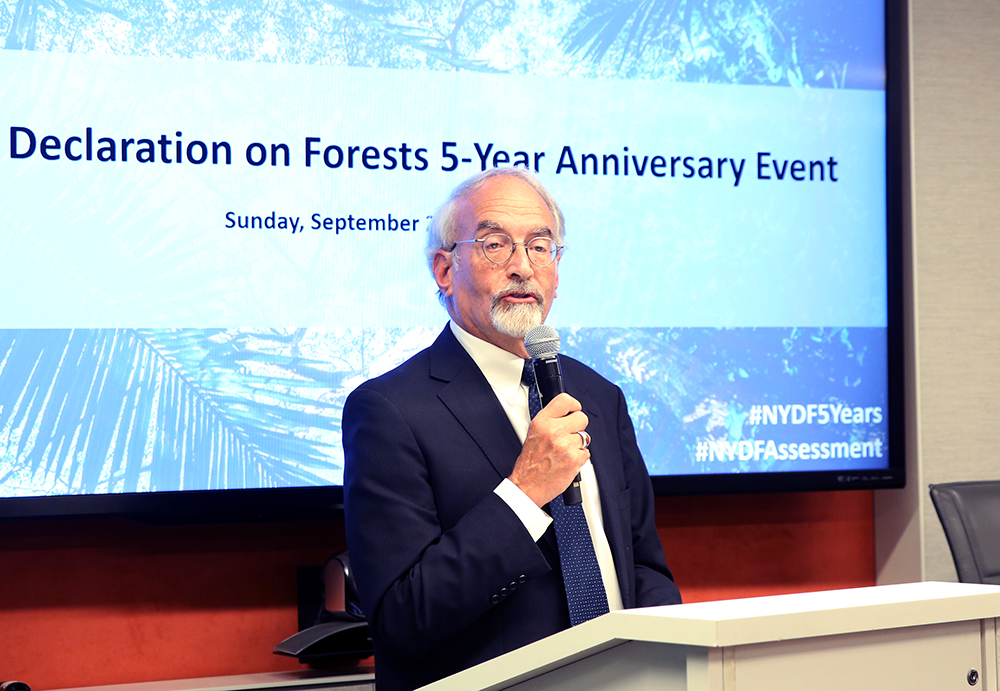
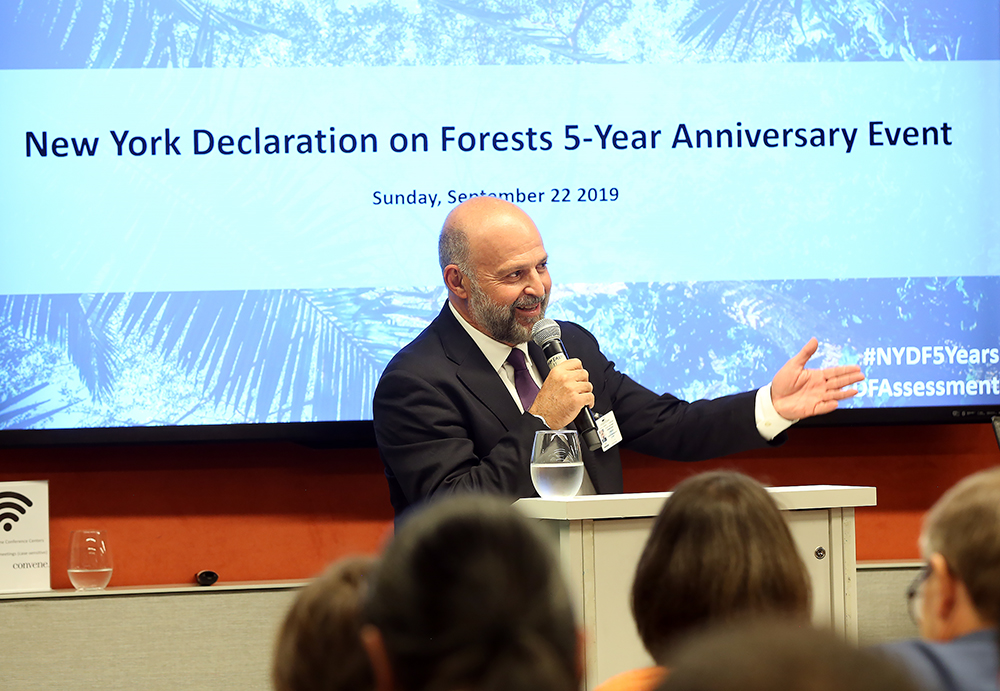
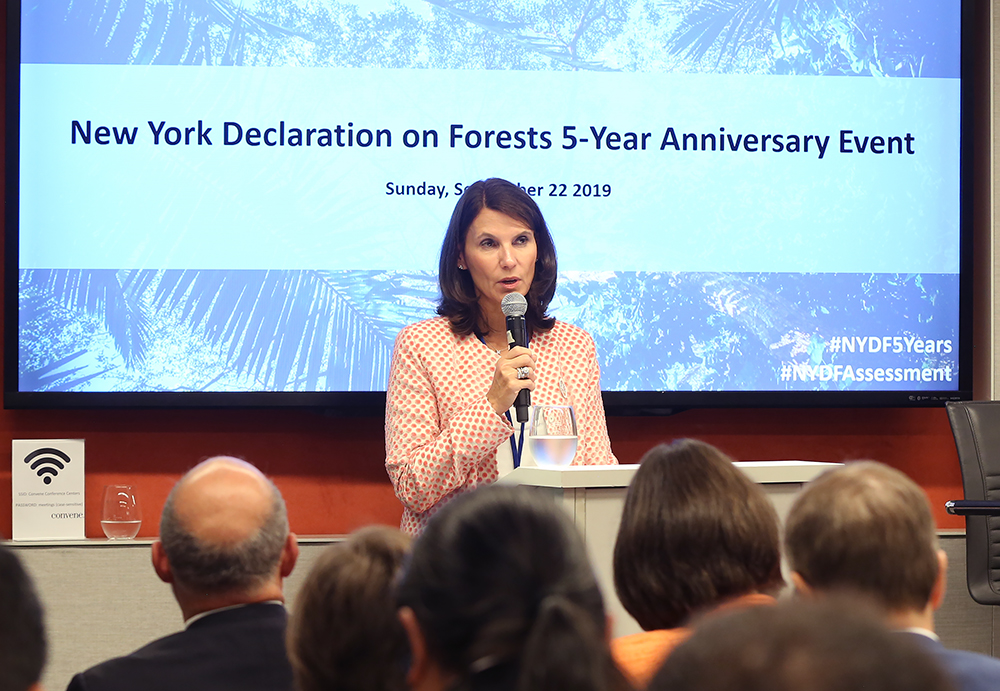
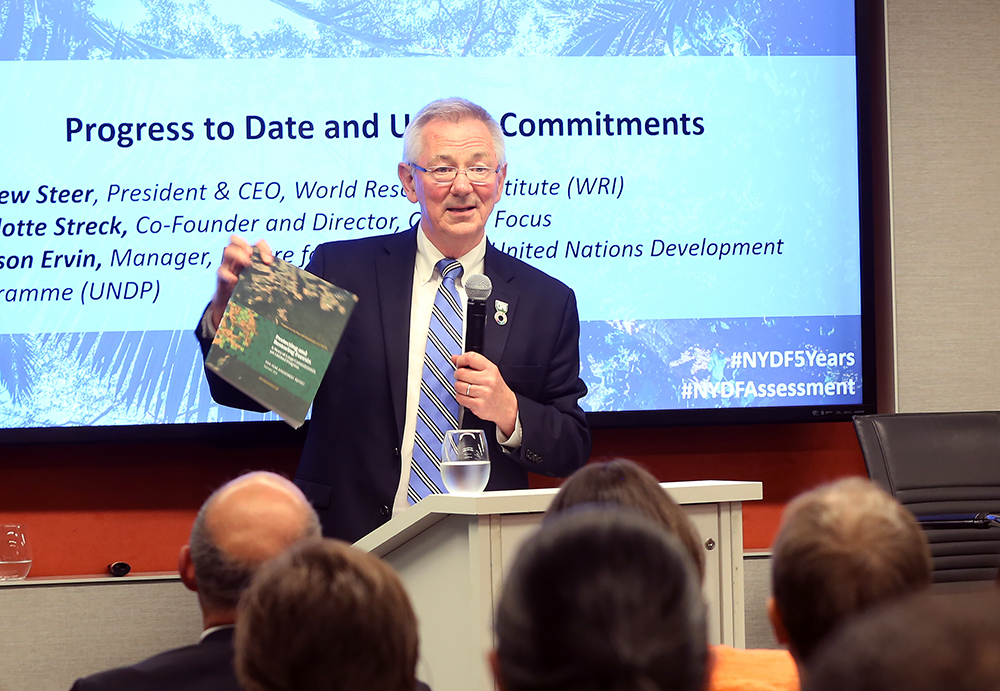
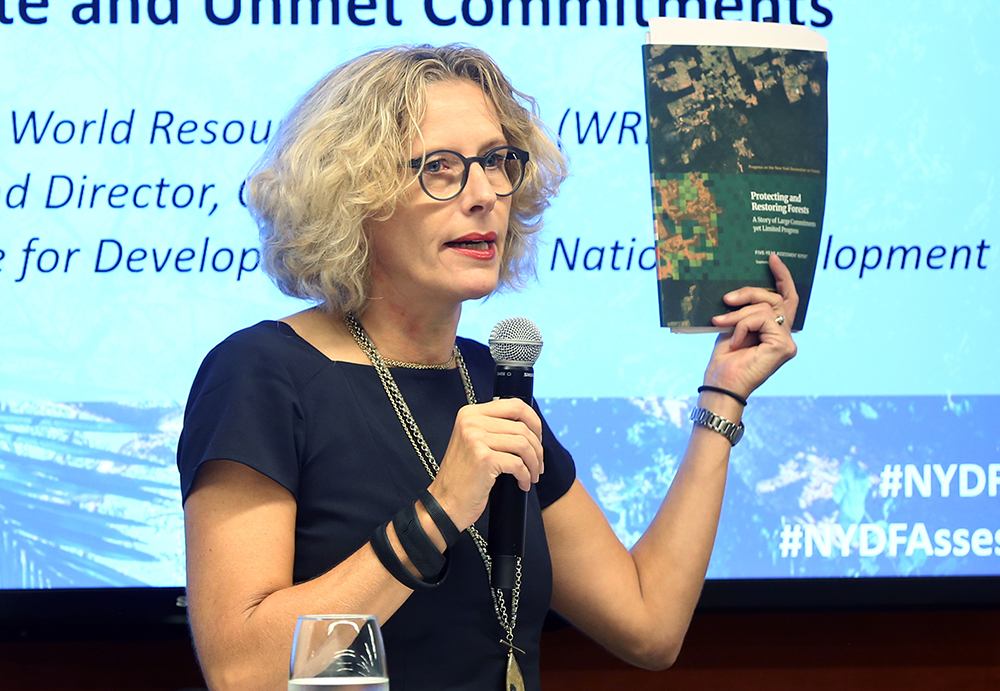
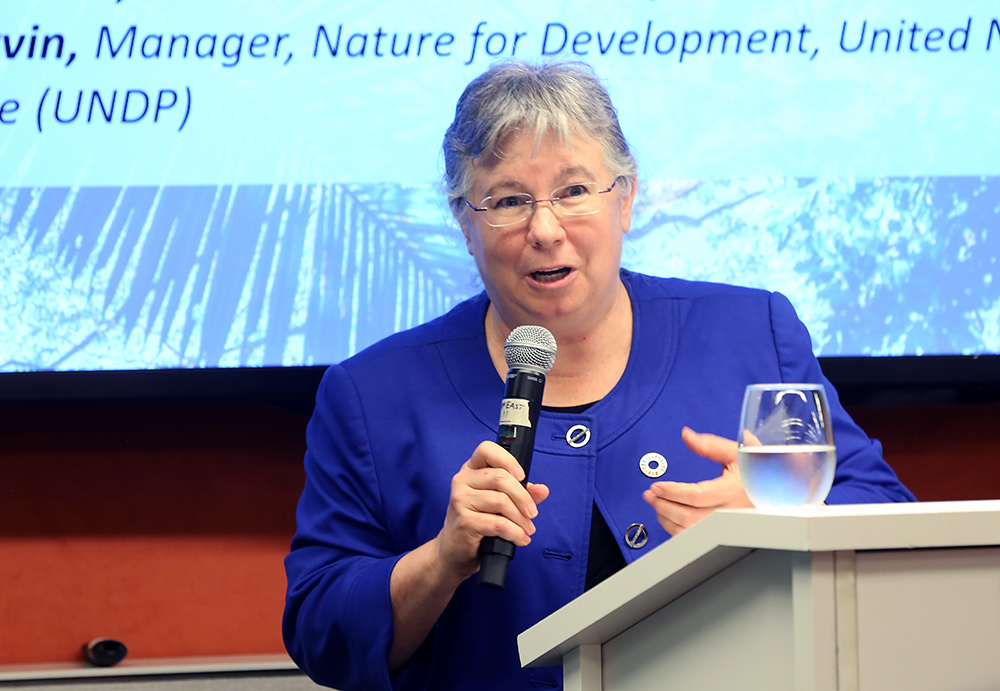
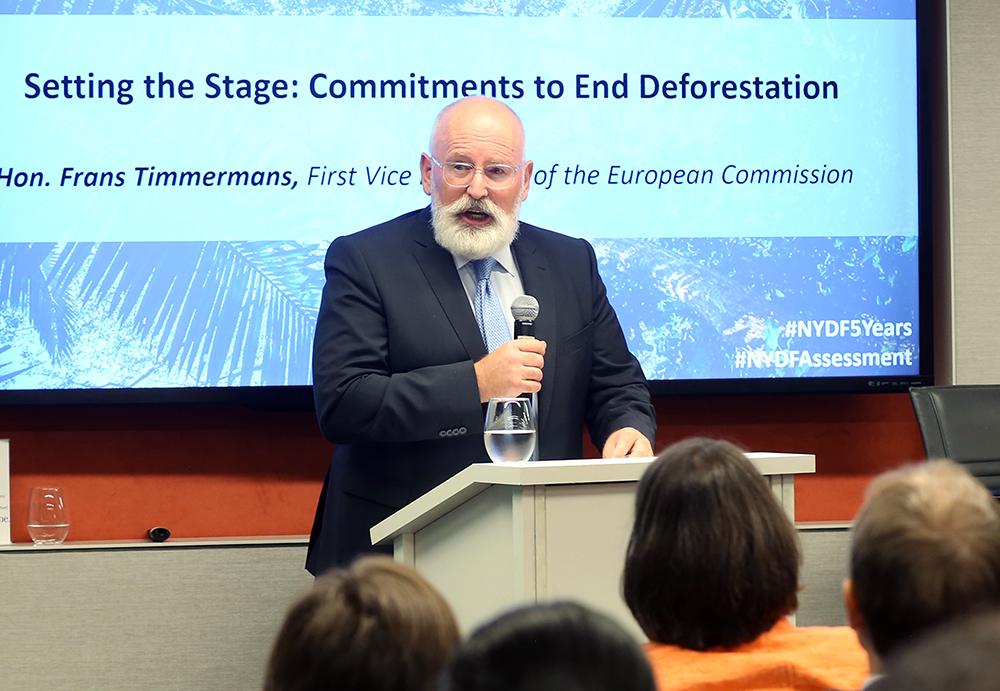
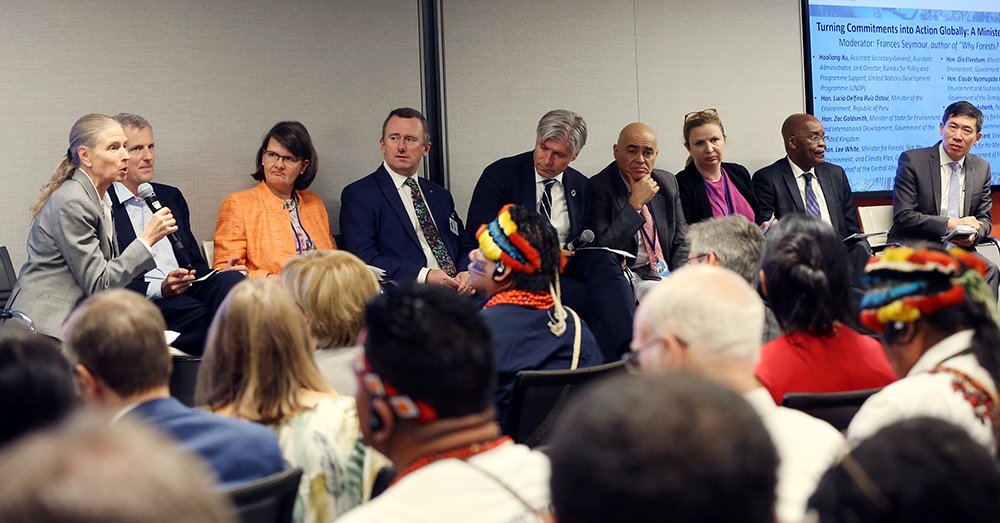
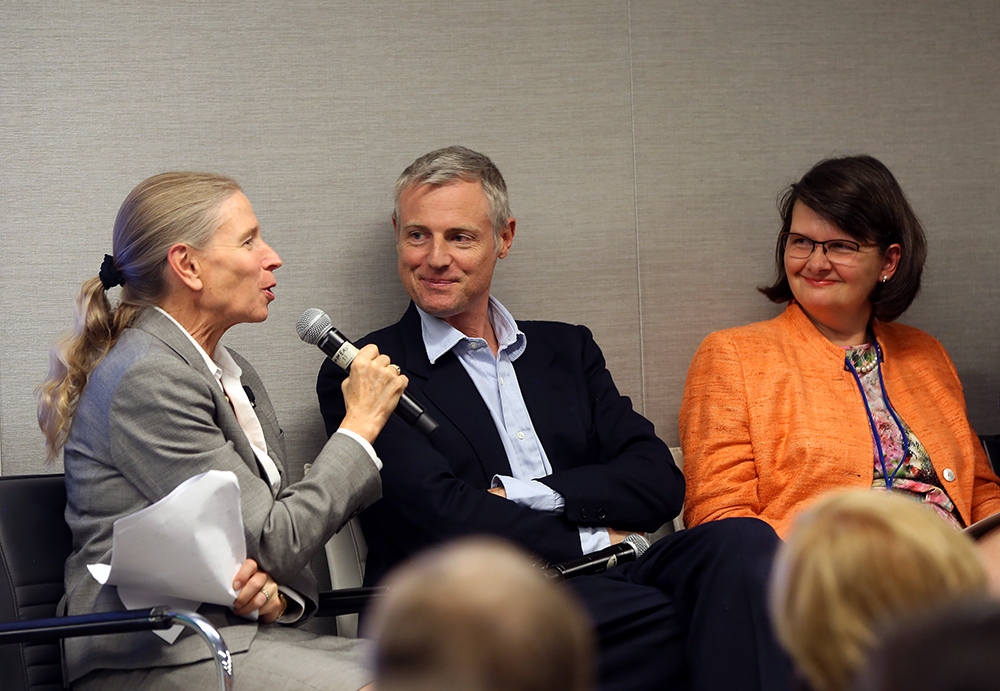
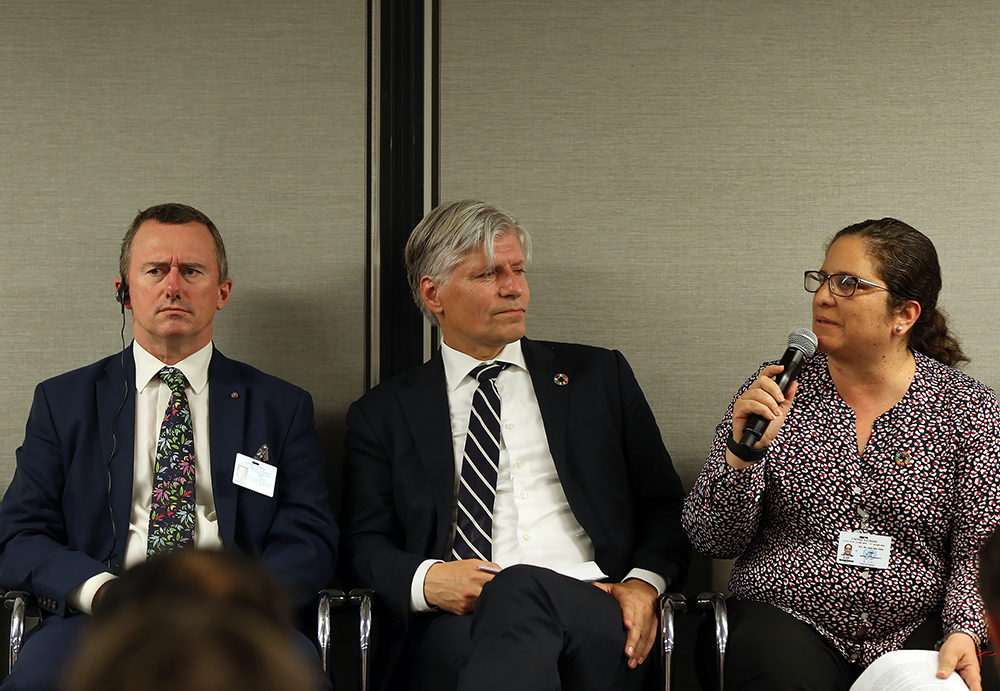
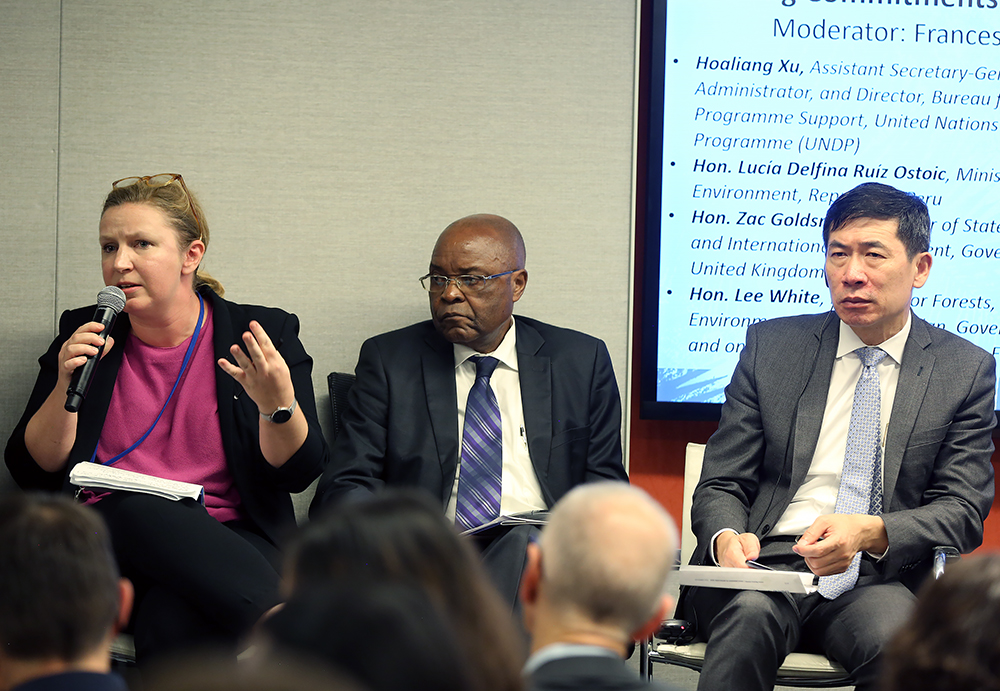
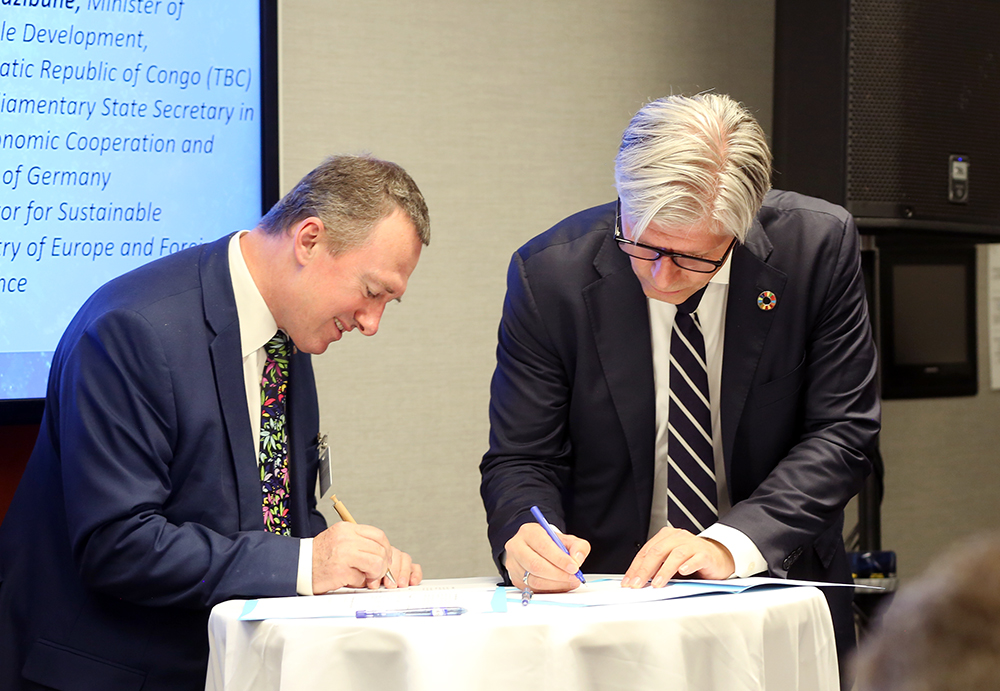
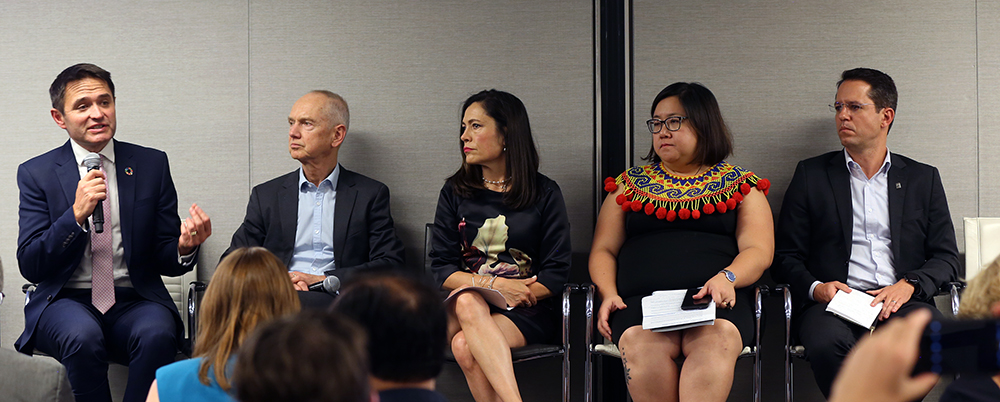
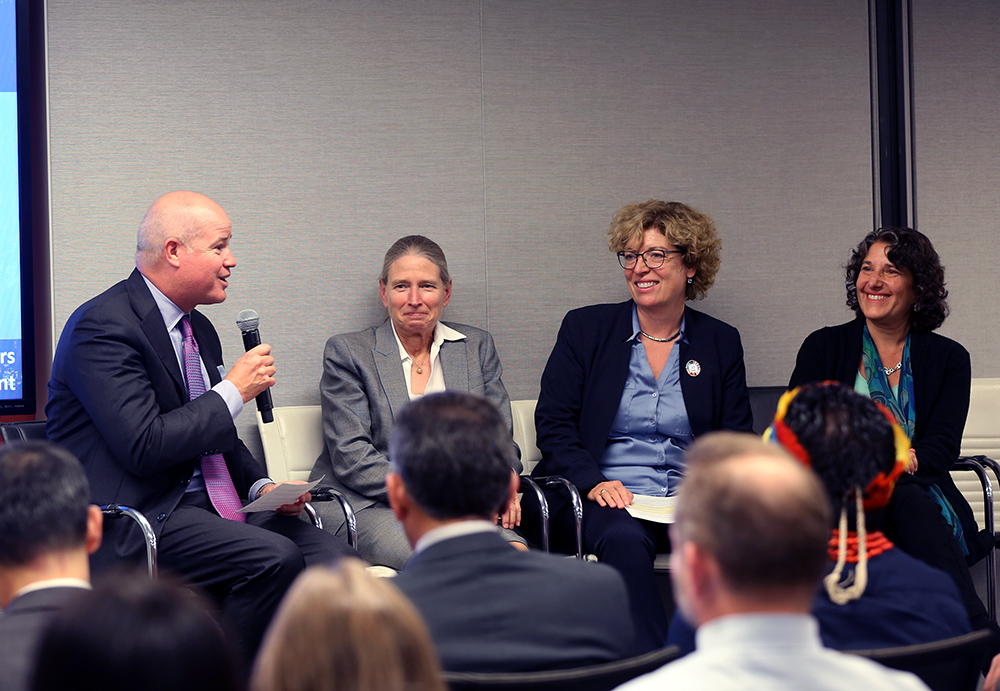
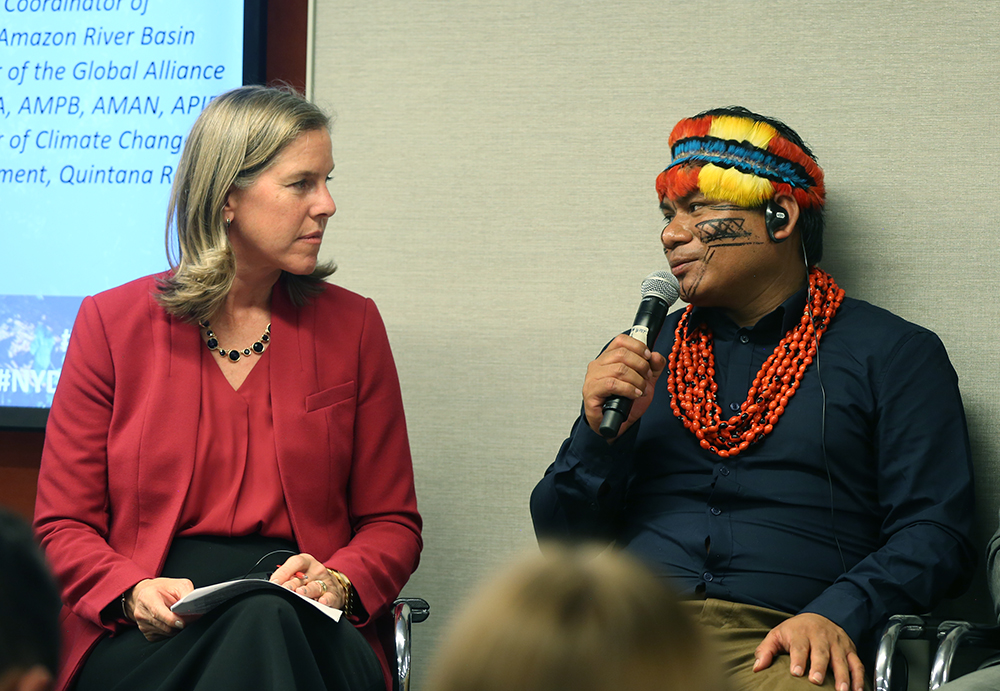
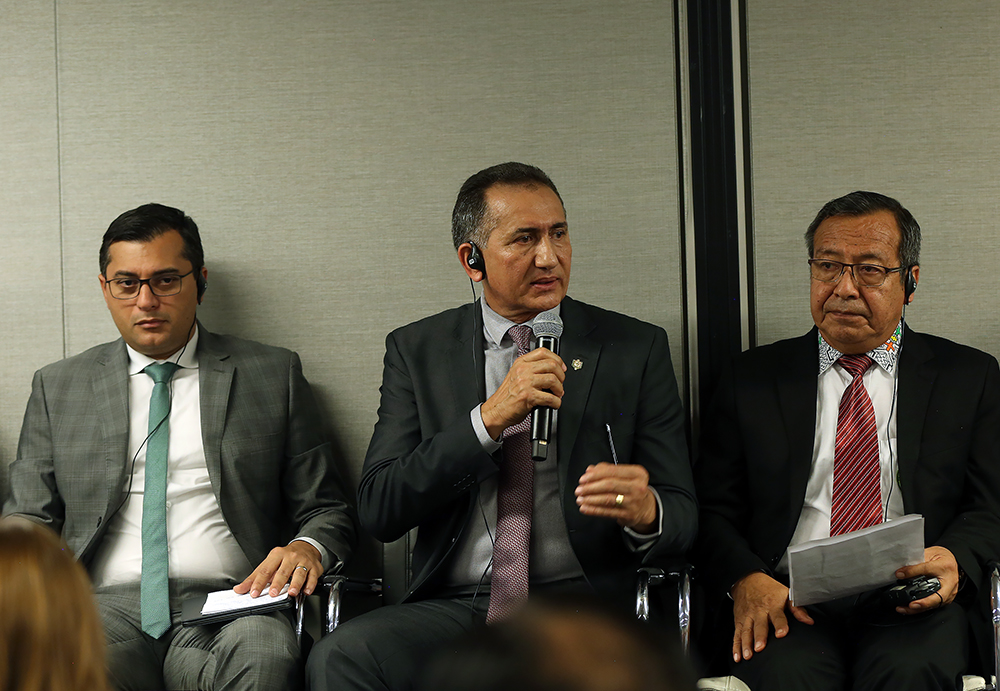
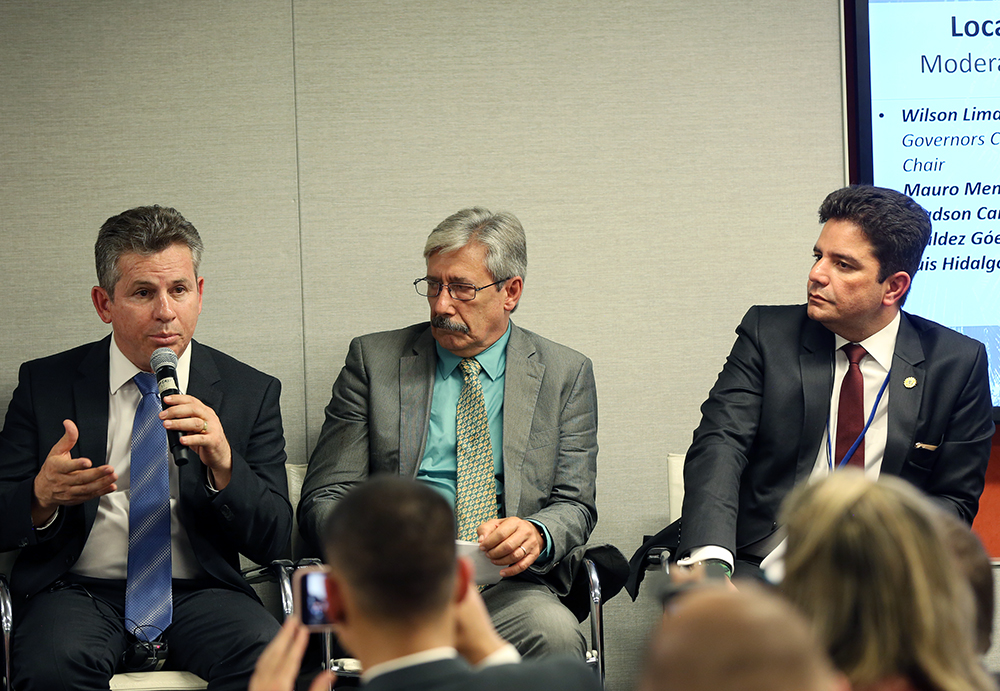
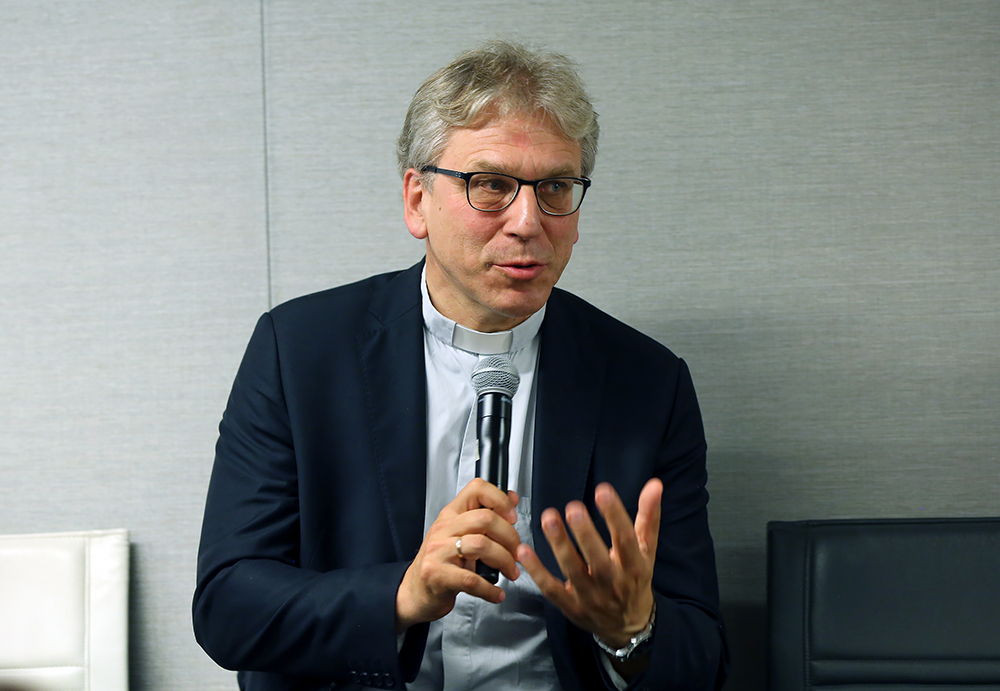
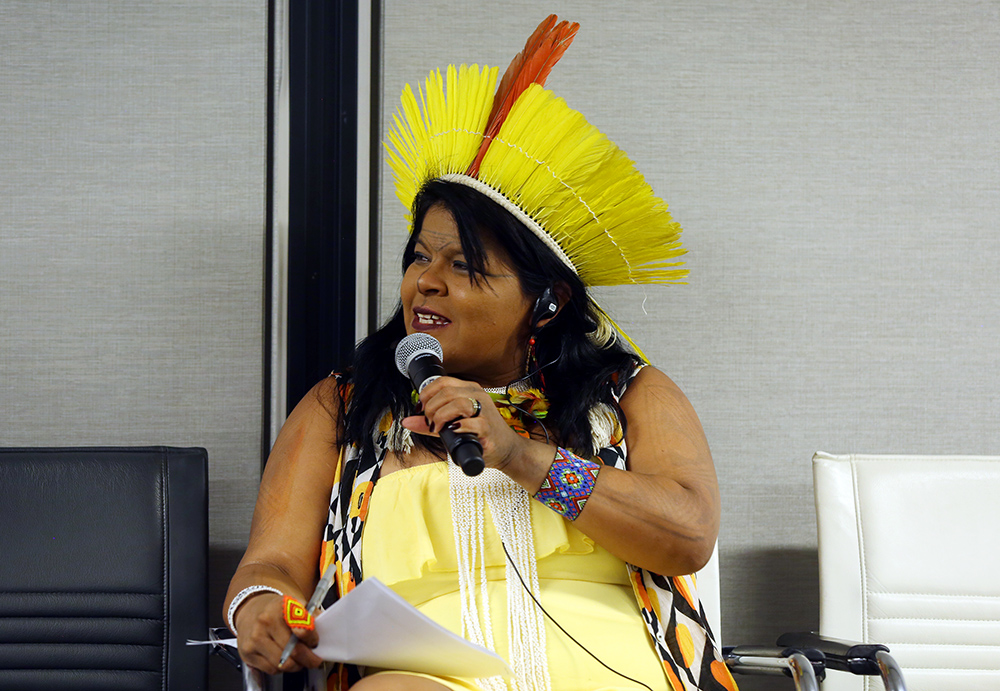
CONTACT
Tobias Cabani | Tobias.Cabani.Extern@bmu.bund.de
MORE INFORMATION
https://nydfglobalplatform.org/
https://www.interfaithrainforest.org/
https://forestdeclaration.org/images/uploads/resource/2019NYDFReport.pdf